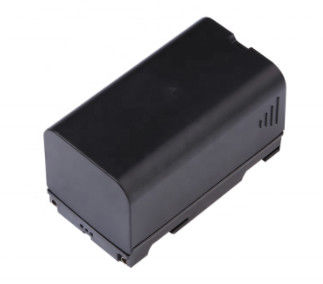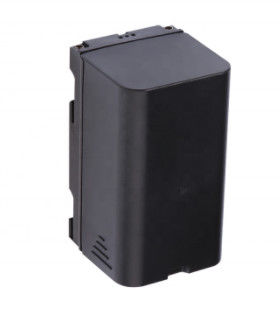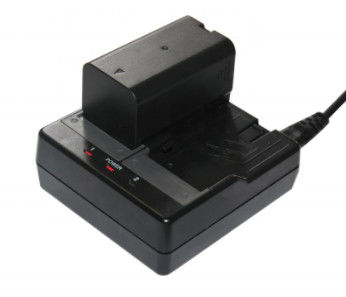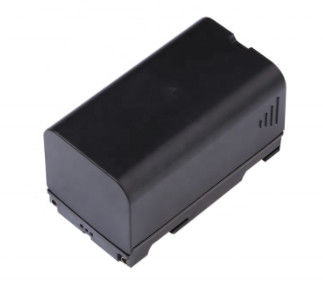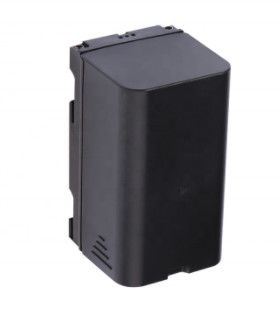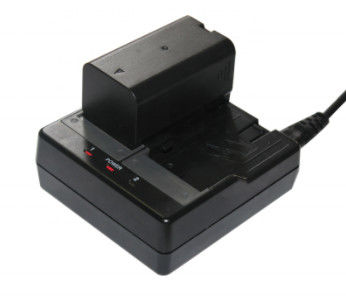-
Surveying Reflector Prism
-
Survey Mini Prism
-
360 Degree Prism
-
Total Station Prism
-
Prism Pole Bipod
-
Carbon Fibre Telescopic Pole
-
Telescopic Levelling Staff
-
Tribrach Adaptor
-
Instrument Tripods
-
Total Station Batteries
-
Total Station Battery Charger
-
Total Station Cable
-
Total Station Accessories
-
Surveying Instrument
BT-L2 Battery for Topcon ES/OS and Hiper II Total station
| Voltage | 7.4V | Capacity | 4300mAh |
|---|---|---|---|
| Size | 76*41*41 (mm) | Weight | 195g |
| Cell Type | Li-lon | Temperature | 10~40 °C |
| Charger | BC-L2A’ CDC-68D | Rechargeable | Yes |
| Used For | TOPCON ES-600G/HIPER II | Color | Black |
BT-L2 Battery for Topcon ES/OS and Hiper II Total station
Model: BT-L2
Specifications:
| Voltage | 7.4V |
| Dimension | 76*41*41 (mm) |
| Type | Li-lon |
| Capacity | 4300mAh |
| Weight | 195g |
| Package | Individual Box Package |
| Warranty | 12 Months |
| Temperature | 10~40 °C |
| Charger | BC-L2A’ CDC-68D |
| Rechargeable | Yes |
| Used For | TOPCON ES-600G/HIPER II |
How to Charge Battery
Initial Charging: When you first get your battery you should charge it until your charger or device indicates that it is fully charged. If your device/charger does not indicate whether or not it is fully charged, then check your device/charger manual for charging times. It can take 1-12 hours to fully charge depending on the chemistry of your battery and the type of device and charger. After that it is good to charge it as needed while making sure you do not leave it at a low charge level for long periods. Also, please keep in mind that it can take 2-4 initial full charges/discharges before a new battery begins to provide maximum performance/runtime.
Recharging: Your battery was designed to be charged regularly and should NOT be left at a low charge level for long periods. You should charge it as often as needed to prevent the charge level from getting much below 15% of full.
Charging During Storage: During storage your rechargeable battery will trickle discharge naturally (or slowly lose its current charge). Long storage periods can permanently diminish the overall life of the battery especially when the battery is left at a low charge level for too long. If you will be storing your battery for a long period of time, be sure NOT to store it at a low charge level. Bring the charge level up to full before storage and then top off the charge level as needed during storage (to prevent it from sitting too long at low charge). It is highly recommended, even during storage, that you charge the battery regularly to prevent the possibility of the battery sitting at low charge for too long (sitting at low charge for too long will cause deep discharge which can permanently damage the cells and render the battery useless). Damage from deep discharge is NOT a defect and therefore it is not covered by warranty. For rechargeable lithium batteries in storage (including lithium ion and lithium polymer), a full recharge might be needed every 3-6 months. For rechargeable nickel batteries in storage (NICD and NIMH), a full recharge might be needed every 1-2 months. Nickel batteries trickle discharge in storage faster than lithium batteries.
What will cause my battery to lose power?
A battery over time degrades and eventually stops working. In fact the battery from its very first charge begins a very slow process that causes the battery to cease from functioning. Collectively the process is called battery degradation and power loss and it includes the following: declining capacity, increasing internal resistance, elevated self-discharge, and premature voltage cut-off on discharge.
Declining capacity is when the amount of charge a battery can hold gradually decreases due to usage, aging, and with some chemistry, lack of maintenance.
The loss of charge acceptance of the Li ion/polymer batteries is due to cell oxidation. Cell oxidation is when the cells of the battery lose their electrons. This is a normal process of the battery charge creation process. The capacity loss is permanent because the metals used in the cells run for a specific time only and are being consumed during their service life.
Internal resistance, known as impedance, determines the performance and runtime of a battery. It is a measure of opposition to a sinusoidal electric current. A high internal resistance curtails the flow of energy from the battery to a device. The aging of the battery cells contributes, primarily, to the increase in resistance as does cell oxidation. Interestingly energy may still be present in the battery, but it can no longer be delivered due to poor conductivity.
Elevated Self-discharge: All batteries have an inherent self-discharge. The self-discharge on nickel-based batteries is 10 to 15 percent of its capacity in the first 24 hours after charge, followed by 10 to 15 percent every month thereafter. Li-ion batteries self-discharge about five percent in the first 24 hours and one to two percent thereafter in the following months of use. At higher temperatures, the self-discharge on all battery chemistries increases. The self-discharge of a battery increases with age and usage. Once a battery exhibits high self-discharge, little can be done to reverse the effect. Be sure never to leave a rechargeable battery at low charge for long periods, even during storage.
Premature Voltage Cut-Off: Some devices do not fully utilize the low-end voltage spectrum of a battery. A device may cut itself off before the designated end-of-discharge voltage is reached leaving battery power in the battery unused. For example, a pda that is powered with a single-cell Li ion battery and is designed to cut-off at 3.7V may actually cut-off at 3.3V. Obviously the full potential of the battery and the device is lost (not utilized). Why? It could be something with elevated internal resistance and or operations at warm ambient temperatures. Devices that load the battery with current bursts are more receptive to premature voltage cut-off than analog equipment. High cut-off voltage is mostly equipment related, not battery.
![]()
![]()
![]()




